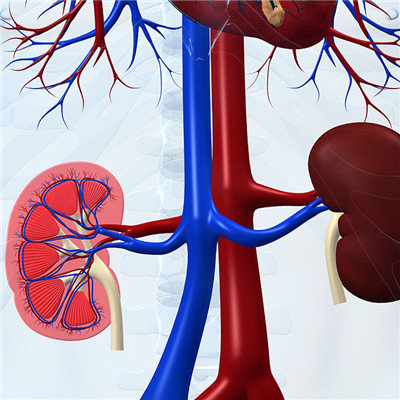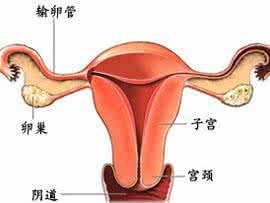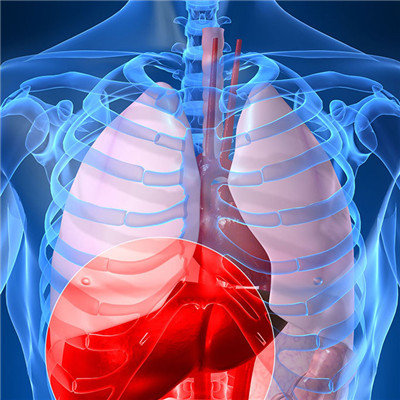Small bowel tumor symptoms?
summary
Small intestine tumor refers to the tumor of small intestine from duodenum to ileocecal valve. The small intestine tumor described in this chapter is limited to jejunum and ileum. The small intestine accounts for 75% of the total length of the gastrointestinal tract, and its mucosal surface area accounts for more than 90% of the surface area of the gastrointestinal tract. However, the incidence of small intestine tumor only accounts for about 5% of the gastrointestinal tumor, and small intestine malignant tumor is more rare, Small bowel tumor symptoms? Let's talk about it.
Small bowel tumor symptoms?
1. Abdominal pain is a common symptom. It can be caused by ulceration on the surface of the tumor, intestinal spasm caused by stimulation of the intestinal tube, intestinal obstruction or intussusception. When the tumor is huge and protrudes into the intestinal cavity, it can cause intestinal obstruction; Tumor invasion of the intestinal wall can cause intestinal stenosis and obstruction. This kind of obstruction is more common in malignant tumors of the small intestine. Intussusception is mostly caused by benign tumors of the small intestine, which can be acute or repeated chronic. 70% of the cases have varying degrees of abdominal pain. In the early stage, it is mainly caused by tumor induced intestinal peristalsis disorder or pulling mesentery, and the pain site is corresponding to the location of the tumor, Generally, the pain around umbilicus is dull and distending, which is aggravated after eating, and does not attract the attention of the patient. If obstruction or perforation occurs, the abdominal pain is aggravated, and the patient often goes to see a doctor for it.

2. About 1 / 3 to 2 / 3 of patients with gastrointestinal bleeding are caused by tumor surface ulceration. Most of them are occult bleeding, which is manifested as positive fecal occult blood test or black stool. Iron deficiency anemia can also occur for a long time, intermittent small amount of bleeding or even large amount of fecal blood. Leiomyoma and sarcoma, hemangioma and adenoma, neurofibroma are the most common causes of bleeding, Most of them are long-term occult blood positive, leading to anemia, occasional bloody stool or a large amount of fresh bloody stool, even shock. When a large amount of bleeding occurs, it is accompanied by paroxysmal abdominal pain, bowel sounds, followed by fresh bloody stool. The location and amount of bleeding of the tumor are different. The stool can be brown, brown red, sauce red to bright red. If there is a large amount of bleeding in the terminal ileum, the blood color is bright red, The bleeding rate of smooth muscle tumor, hemangioma and malignant lymphoma is high. The extraluminal smooth muscle tumor may break down occasionally and cause intraperitoneal hemorrhage.

3. Due to the large activity and unfixed position of the small intestine, the masses of small intestine can be detected occasionally in physical examination, but sometimes they can't be detected, sometimes they don't exist. Most of the palpable masses are small intestine sarcomas. Nearly half of the cases can touch the masses in the abdomen. Jejunal tumors often touch the masses in the left upper abdomen, The masses of ileal tumors are mostly palpable in the lower abdomen or right lower abdomen. Most of the extraintestinal tumors are large in volume. The surface of benign tumors is smooth, the boundary is clear, and the degree of activity is large. Most of the malignant tumors are not clear, the surface is not smooth, hard, and the degree of motion is small. If the masses appear occasionally, accompanied by paroxysmal abdominal pain, the tumor should be considered as causing intussusception in adults.

matters needing attention
Extensive resection and anastomosis of the affected intestinal segment and regional lymph nodes are needed in the operation of small intestinal malignant tumors. If it is duodenal malignant tumor, duodenopancreatectomy is needed in most cases. If the small intestinal tumor can not be removed by local fixation, bypass operation can be performed to relieve or prevent obstruction. The 5-year survival rate after resection was about 40% for leiomyosarcoma, 35% for lymphoma and 20% for adenocarcinoma. Except for lymphoma, radiotherapy and chemotherapy were less effective.















